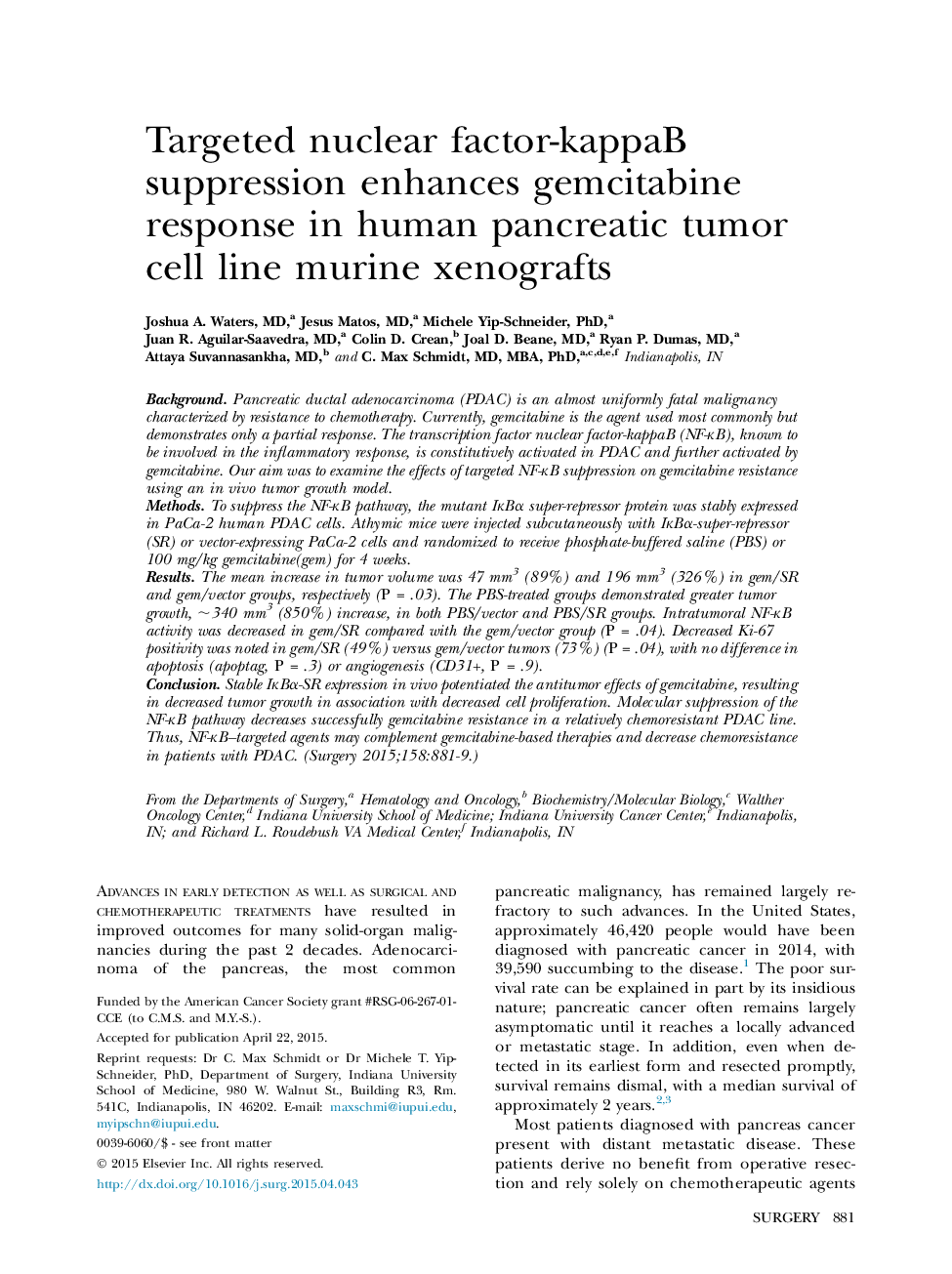| Article ID | Journal | Published Year | Pages | File Type |
|---|---|---|---|---|
| 4306929 | Surgery | 2015 | 9 Pages |
BackgroundPancreatic ductal adenocarcinoma (PDAC) is an almost uniformly fatal malignancy characterized by resistance to chemotherapy. Currently, gemcitabine is the agent used most commonly but demonstrates only a partial response. The transcription factor nuclear factor-kappaB (NF-κB), known to be involved in the inflammatory response, is constitutively activated in PDAC and further activated by gemcitabine. Our aim was to examine the effects of targeted NF-κB suppression on gemcitabine resistance using an in vivo tumor growth model.MethodsTo suppress the NF-κB pathway, the mutant IκBα super-repressor protein was stably expressed in PaCa-2 human PDAC cells. Athymic mice were injected subcutaneously with IκBα-super-repressor (SR) or vector-expressing PaCa-2 cells and randomized to receive phosphate-buffered saline (PBS) or 100 mg/kg gemcitabine(gem) for 4 weeks.ResultsThe mean increase in tumor volume was 47 mm3 (89%) and 196 mm3 (326%) in gem/SR and gem/vector groups, respectively (P = .03). The PBS-treated groups demonstrated greater tumor growth, ∼340 mm3 (850%) increase, in both PBS/vector and PBS/SR groups. Intratumoral NF-κB activity was decreased in gem/SR compared with the gem/vector group (P = .04). Decreased Ki-67 positivity was noted in gem/SR (49%) versus gem/vector tumors (73%) (P = .04), with no difference in apoptosis (apoptag, P = .3) or angiogenesis (CD31+, P = .9).ConclusionStable IκBα-SR expression in vivo potentiated the antitumor effects of gemcitabine, resulting in decreased tumor growth in association with decreased cell proliferation. Molecular suppression of the NF-κB pathway decreases successfully gemcitabine resistance in a relatively chemoresistant PDAC line. Thus, NF-κB–targeted agents may complement gemcitabine-based therapies and decrease chemoresistance in patients with PDAC.
